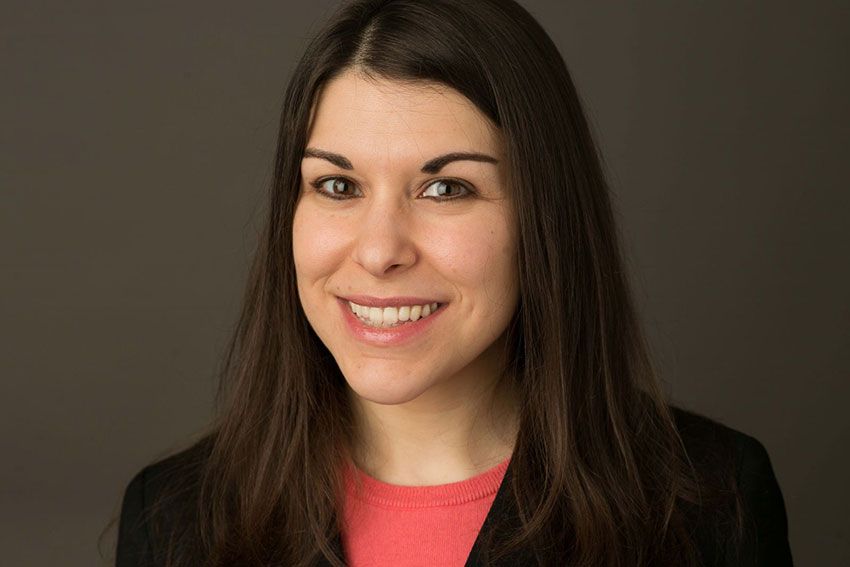
Katherine Chiappinelli, PhD, assistant professor of microbiology, immunology, and tropical medicine at the George Washington University (GW) School of Medicine and Health Sciences (SMHS), received a $1.87 million grant from the National Institutes of Health to research the regulation of repetitive elements in cancer by P53 and epigenetic mechanisms.
Globally, there are approximately 200,000 new cases of ovarian cancer every year, but survival rates have remained relatively unchanged for decades. Chiappinelli’s research will explore new ways to activate the immune system against ovarian cancer.
She and her team previously showed that repetitive elements, parts of one’s DNA that rarely code for protein but can make RNA, are reactivated by epigenetic therapies, or drugs that remove silencing marks on DNA. This reactivation results in viral mimicry in cancer cells.
“This means that the cancer cell recognizes these RNAs as viruses and activates an immune response, bringing in host immune cells to kill the cancer cell,” Chiappinelli said. “We also hypothesized that the transcription factor P53 regulates these repetitive elements and that epigenetic therapies affect cancer cells with mutant P53 differently than those with wild type P53.” Chiappinelli and her team plan to explore the mechanism behind P53’s effect on repetitive element transcription with and without epigenetic therapy.
“This grant will allow us to determine this mechanism, using both human cancer cell lines and mouse models of cancer,” she said, “In addition, we will assess P53 status and repetitive element expression in tumor samples from a clinical trial of immune therapy for ovarian cancer. The long-term goal of this research is to help shape future epigenetic and immune therapies against ovarian cancer.”
Chiappinelli will conduct this research in collaboration with two researchers from GW, Catherine Bollard, MD, director of the Center for Cancer and Immunology Research at the Children’s National Research Institute, associate center director for translational research and innovation at the GW Cancer Center, and professor of pediatrics at SMHS, and Ed Seto, PhD, associate center director for basic sciences at the GW Cancer Center and King Fahd Professor of Cancer Biology and professor of biochemistry and molecular medicine at SMHS, and a researcher and cancer oncologist from Memorial Sloan Kettering Cancer Center, Dimitriy Zamarin, MD, PhD. The grant will run through March 2026.


